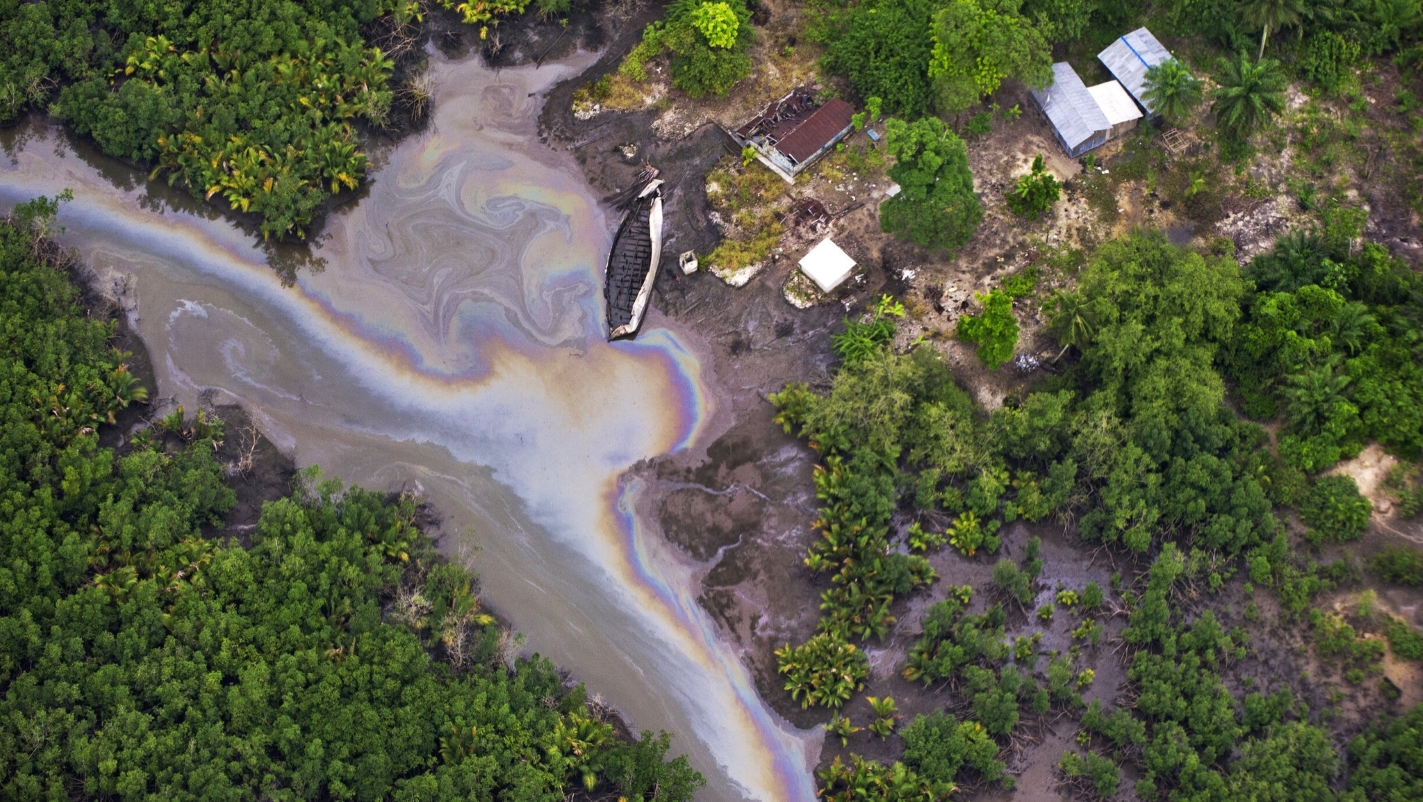 The LSE Phelan US Centre’s Climate Change Essay Competition asked LSE Master’s students to address the question, “What responsibility does the US have to the rest of the world on climate change?” In this runner-up essay, Jibran Raja writes that given that Americans as a whole do not believe that climate action should be a top priority, policymakers who wish to create effective change in US climate policy should make use of securitised language by emphasising the link between climate change and the risk to people’s livelihoods and national security.
The LSE Phelan US Centre’s Climate Change Essay Competition asked LSE Master’s students to address the question, “What responsibility does the US have to the rest of the world on climate change?” In this runner-up essay, Jibran Raja writes that given that Americans as a whole do not believe that climate action should be a top priority, policymakers who wish to create effective change in US climate policy should make use of securitised language by emphasising the link between climate change and the risk to people’s livelihoods and national security.
American Moral Climate Responsibility: Cumulative Emissions
With cumulative emissions amounting to more than 400 billion tonnes, the United States is the heaviest historical emitter of CO2 compared to any other country or region, and thus a significant culprit in causing the existing ecological damage that is driving global average temperatures to unprecedentedly high levels. Climate change, however, does not discriminate based on nationality, with American emissions equally contributing to drought in Africa or floods in Pakistan. Indeed, owing to economic and developmental constraints, nations such as India have highlighted their inability to meet economic goals and energy security whilst pursuing net zero carbon emissions earlier than 2070. Meanwhile, the US is the world’s largest economy, having developed on the back of fossil fuel use and, at present, continues to utilise such fuels for almost three-quarters of its energy production. Such statistics compare poorly to other developed parts of the world, such as Europe, where renewable sources accounted for 40.8 percent of primary energy production in 2020. Thus, the responsibility to cut emissions falls on the US, which has both the economic and technological ability to cut emissions at a faster pace.
The US’ slow political response and poor political framing of climate policy
Despite the growing need to cut emissions, the American policy response to the crisis has, at times, been tepid and constantly unpredictable, meaning that it has not effectively met its responsibilities. From Trump’s scrapping of the Clean Power Act introduced by his predecessor and his withdrawal from the Paris Climate Deal to Biden’s creation of a ‘National Climate Task Force’, climate policy has become an increasingly partisan issue. Yet it is this very partisanship which deprives the world of gauging a clear understanding of the US’ long-term approach to climate change and a consistent reduction in emissions. Historically, climate change discourse in US politics has coincided with conservative resistance that such measures will harm the growth of the American economy. For instance, in 2001 President Bush rejected the Kyoto Protocol on the basis that it would ‘harm the US economy’. In a similar vein, President Trump suggested in 2017 that the Paris Climate Treaty ‘disadvantages the United States to the exclusive benefit of other countries’, specifically in relation to the economy, where he claimed the agreement put the US at a ‘very, very big economic disadvantage’.
In many respects, the liberal wing of American politics has not fully utilised the opportunity to reply on the same terms. For instance, in the run-up to the 2020 election, Joe Biden claimed that climate change was a great threat to humanity as a whole and that the US had a ‘moral obligation’ to the rest of the world. However, there was relatively little emphasis during his campaign on how climate change was affecting Americans in the present day and the direct threat it posed to those whose homes were at risk of flooding or fire. Incidentally, however, President Biden did mention climate change in relation to American forest fires and national security following his inauguration.
The need to securitise climate change in public and political discourse: a tried and tested method
It is clear that at present, Americans as a whole do not believe climate action to be a priority, with Pew Research polling suggesting that in 2023, only 37 percent of Americans believe that dealing with climate change ‘should be a top priority for the President and Congress this year’. What is even more significant is the gap between Republicans and Democrats on this policy issue, with only 13 percent of Republicans believing that it should be a priority this year (compared to 59 percent of Democrats). Instead, economic issues and even terrorism are higher on the list: a significant finding since such issues are far more directly connected with security and self-interest. What is missing, therefore, is the discourse which emphasises the causal link between climate change and the risk to livelihoods and national security: matters which are of far greater importance to US conservatives. In International Relations, such discourse has been defined as ‘securitisation’.
Evidence from other developed countries shows that the securitisation of climate change as an issue works. A 2022 paper by Helen Mees, for instance, shows that in the Netherlands, a securitised discourse surrounding climate change has added an ‘increased sense of urgency for adaptation’ such as in relation to the country’s Delta Program which seeks to protect it against widespread flooding. What is more significant, however, is that such discourse has already been used to drive progress on climate policy in the US itself. According to a 2015 paper by von Lucke, the securitisation of climate change as a political tool ‘succeeded in raising considerable awareness for the topic in the public and in political as well as military circles’ during a Republican administration. Unfortunately, however, the author describes how the discourse surrounding securitisation gradually ‘wore out’. Thus, policymakers who aim to create effective change in US climate policy need to make use of securitised language more generously.
One could ask how securitising climate change links back to the responsibility the United States owes to the rest of the world. The greatest hurdle to a more expansive and consistent US climate policy has been domestic hesitancy, especially among conservative politicians and voters who fail to see the issue as being a priority. Indeed, modern conservative discourse has implied a trade-off between economic prosperity and climate action. Thus, a discourse which appeals directly to conservative voters and policymakers in light of their security focused political agenda is needed in order to change US climate policy so that it meets its responsibilities to the rest of the world. Such an approach will therefore be one which is rooted in bipartisan appeal, coloured through a justification for climate measures rooted in state self-interest and security.
Watch the Phelan US Centre video featuring the climate change essay competition winner and runners-up
- Featured image: Photo by Chris Boese on Unsplash
- Please read our comments policy before commenting.
- Note: This article gives the views of the author, and not the position of USAPP – American Politics and Policy, nor the London School of Economics.
- Shortened URL for this post: https://bit.ly/3K0AZRb






